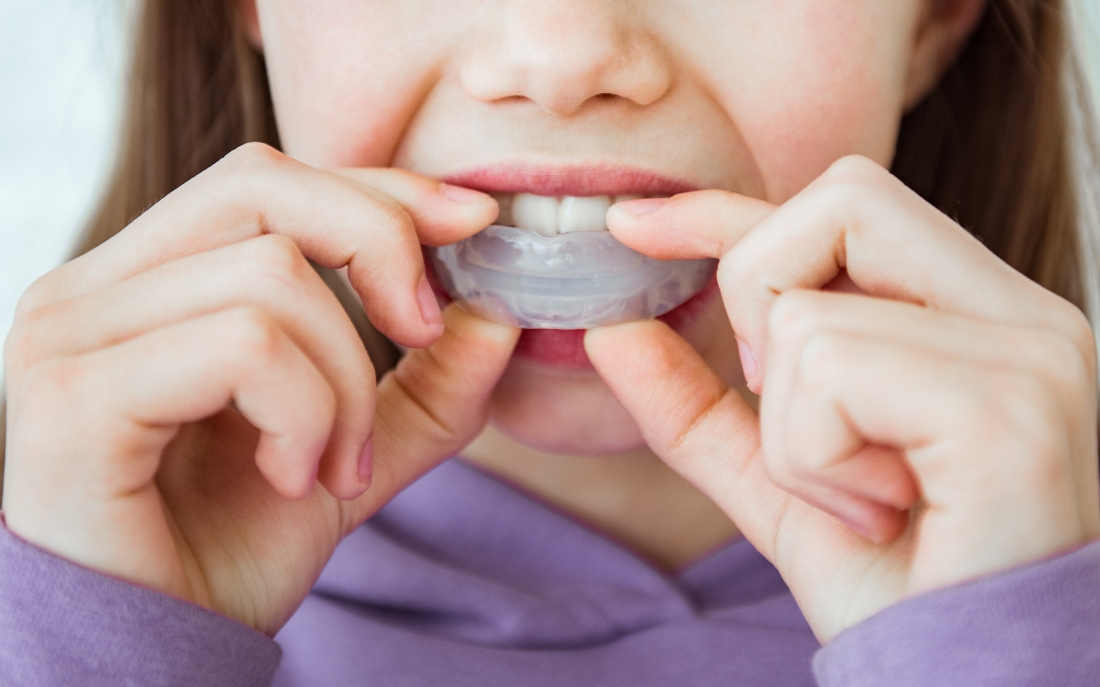How Do Mouthguards Prevent Concussions and Other Head Injuries?


Alright, let’s get into it—sports are a blast, right? Whether you’re a weekend warrior or a pro athlete, there’s nothing quite like the thrill of the game. But let’s face it, injuries can put a major damper on the fun. And when it comes to protecting yourself, one of the most underrated pieces of gear is the mouthguard. Yup, it’s not just about saving your smile—it’s also about keeping your brain safe.
You’ve probably heard the buzz about mouthguards preventing concussions and head injuries, but how do they actually work? Let’s dive into the science, explore why they’re a must for athletes, and break it all down in a way that makes sense (and is actually interesting!).
What Exactly is A Mouthguard?
Mouthguards, or “gumshields” if you’re across the pond, are a flexible, protective piece of equipment that fits snugly over your teeth. They’re typically made from rubber-like materials that absorb impact, protecting your teeth, gums, and jaws from injuries.
But here’s the kicker: mouthguards don’t just keep your pearly whites safe—they can also help prevent concussions and other serious head injuries by reducing the force of blows to the face and jaw. And in contact sports like football, hockey, or boxing, that’s a total game-changer!
How Do Mouthguard Prevent Concussions and Head Injuries?
So, how does a little piece of plastic save your brain from a major blow? It’s all about force distribution and shock absorption. Let’s break it down:
- Absorbing Impact: When you take a hit to the face or jaw, that force has to go somewhere. Without a mouthguard, the shock can travel through your jawbone and into your skull, potentially causing a concussion. A mouthguard acts like a cushion, absorbing the impact and reducing the amount of force that reaches your head.
- Stabilizing the Jaw: A properly fitted mouthguard helps keep your jaw in place, reducing the risk of fractures or dislocations. Since the jawbone is connected to your skull, stabilizing it helps minimize the amount of jarring movement that can affect your brain.
- Reducing Force on the Brain: In sports, concussions often happen when the brain gets shaken inside the skull. By absorbing some of the impact and stabilizing the jaw, mouthguards help reduce the risk of these dangerous brain injuries.
The Science Behind Mouthguard and Concussion Prevention
Okay, let’s get a little scientific here—but don’t worry, we’ll keep it fun!
Concussions occur when a sudden force causes the brain to move rapidly inside the skull. This can lead to bruising, damage to blood vessels, and even nerve injuries. The brain is basically floating in fluid inside your head, and a hard impact can cause it to slam into the skull. Ouch!
Mouthguards act like a buffer for your jaw, reducing the force that’s transferred from a hit to the lower part of your face. By absorbing and redistributing that energy, mouthguards lessen the chance of your brain being jostled around like a pinball.
Studies have shown that athletes who wear mouthguards have a lower risk of concussions compared to those who don’t. While mouthguards aren’t a 100% guarantee that you’ll never get a concussion, they do significantly reduce the risk, especially when used alongside other protective gear like helmets.
Types of Mouthguards: Which One Should You Choose?
Not all mouthguards are created equal. In fact, there are a few different types, and picking the right one for you can make all the difference. Let’s go over your options:
1. Stock Mouthguards
These are the “one-size-fits-all” options you can grab off the shelf at any sporting goods store. They’re the cheapest option, but because they’re not custom-fit, they tend to be bulky and uncomfortable. Not ideal, right?
2. Boil-and-Bite Mouthguards
These are a step up from stock mouthguards. You soften them in hot water and then bite down to mold the material to your teeth. They offer a better fit than stock mouthguards and are relatively affordable. These are popular among athletes because they provide more comfort and protection.
3. Custom-Fit Mouthguards
For the ultimate protection and comfort, custom-fit mouthguards are where it’s at. Made by your dentist, they’re designed specifically for your teeth and mouth, offering the best fit and the highest level of protection. Sure, they’re more expensive, but if you’re serious about protecting your head (and your smile), they’re totally worth the investment.
Who Needs a Mouthguard?
The short answer? Anyone who plays a sport where there’s a risk of injury to the face, jaw, or head. But let’s get specific.
A mouthguard is an absolute must if you’re into sports like football, hockey, basketball, boxing, MMA, rugby, or soccer. These are all high-contact sports where a hit to the face is pretty much par for the course. Even sports like skateboarding, snowboarding, and cycling carry a risk of head injuries, and a mouthguard can offer extra protection.
But it’s not just for the pros. If you’re playing in a casual league, hitting the gym for some sparring, or even just joining a weekend pickup game, protecting yourself should be a top priority.
Can Mouthguards Help With Other Types of Injuries?
We’ve talked a lot about concussions, but mouthguards aren’t just one-trick ponies. They’re also super effective at preventing other types of injuries, such as:
1. Dental Injuries
We all know that one friend who lost a tooth during a game (RIP to their smile). Mouthguards help prevent chipped, cracked, or knocked-out teeth by acting as a barrier between your teeth and the impact.
2. Jaw Injuries
Without a mouthguard, a hit to the jaw can cause serious fractures or dislocations. Mouthguards help stabilize your jaw, reducing the risk of these painful (and expensive) injuries.
3. Lip and Gum Injuries
Mouthguards protect the soft tissue inside your mouth from getting cut or bruised during impact. They help keep your teeth from smashing into your lips or gums, which can lead to some pretty gnarly injuries.
How to Care for Your Mouthguard?
A mouthguard is like any other piece of gear—it needs some TLC to stay in good shape. Here’s how to keep yours clean and working properly:
- Rinse it after use: Give your mouthguard a good rinse with cool water after every use.
- Brush it: Clean your mouthguard with a toothbrush and toothpaste regularly to keep bacteria at bay.
- Store it properly: Always store your mouthguard in its case when you’re not using it. Keep it away from heat or sunlight, as this can warp the material.
- Replace it when needed: Mouthguards don’t last forever. Replace yours if it becomes damaged or starts feeling loose.
Whether you’re shooting hoops, hitting the ice, or going for that knockout punch, protecting yourself should be your number one priority. A custom mouthguard is one of the easiest and most effective ways to reduce the risk of serious injuries, from concussions to knocked-out teeth.
And the best part? You don’t have to sacrifice comfort for protection. With the right mouthguard, you’ll be able to focus on what matters—crushing the competition and having a blast doing it. So, next time you gear up, don’t forget to pop in your mouthguard and keep your head and healthy smile) in the game!
FAQs About Mouthguard and Concussion Prevention
A: While a mouthguard can significantly reduce the risk of concussions, no protective gear can completely eliminate the risk. It’s always important to use a combination of safety measures, like helmets and proper technique, to stay as safe as possible.
A: A properly fitted mouthguard should feel snug but not uncomfortable. It should stay in place without having to bite down on it constantly. If it feels loose or bulky, it’s time for a new one.
A: Most mouthguards should be replaced every season or sooner if they become damaged or don’t fit properly. If you’re using a boil-and-bite or stock mouthguard, replacing it regularly is even more important.
A: Yes! In fact, it’s extra important to wear a mouthguard if you have braces, as they can cause additional injury to your mouth during impact. Ask your dentist about custom-fit mouthguards that work with braces.